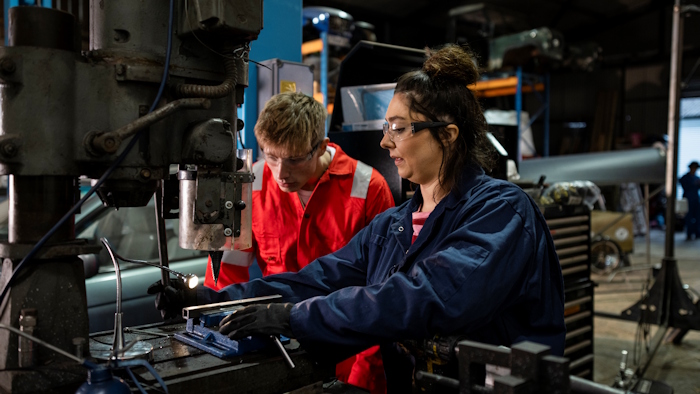Business cards
Work out how much cashback you could earn.
Boost your cash flow with Invoice Finance and get early access to money owed to you. Our dedicated client managers have over 600 years’ combined experience.
Get a quote
Invoice Finance provides early access to the money owed to you in unpaid invoices. While you’re waiting for invoices to be paid by your customers, we can advance up to 90% of the invoice cash value to you. This is usually within 24 hours of applying.
Our Invoice Finance solution is also known as Invoice Discounting which is a confidential service. Our product is designed to help you access money quickly to strengthen cash flow and support your growth ambitions.
We support a range of established and successful businesses that sell business-to-business on credit terms and help support their growth ambitions. Some of the industry sectors that we support include:

No more waiting on slow-paying clients. Get the funds you need to purchase materials, pay subcontractors and complete projects faster with Invoice Finance.

Say goodbye to cashflow gaps caused by delayed payments. Invoice finance can help keep your trucks rolling and your business moving smoothly.

Access the capital you need to purchase raw materials, cover overheads and fulfil orders with Invoice Finance. Don't let payment delays slow down your production line.

Secure the funds you need to pay your staff, expand your candidate pool and grow your business. Elevate your recruitment agency with Invoice Finance and stop cashflow constraints.
There are some common mis-conceptions about Invoice Finance. This video aims to provide clarity around these myths and highlight how Invoice Finance can support businesses.
To get started, click get a quote.
No, you can apply even if you don’t bank with us.
Fast access to funds helps strengthen your cash flow, giving you increased flexibility and headroom between incurring expenses e.g. buying goods and manufacturing costs, and selling products. You can use funds to support growth, develop new products, target new markets, or finance acquisitions.
Yes, accounts receivables financing is the same as Invoice Financing and allows you to raise funds against unpaid invoices.
Invoice Finance uses your sales ledger to unlock up to 90% of your unpaid invoices, typically within 24 hours. Invoice Finance available funds grows in line with your business sales unlike loans and overdrafts.
It won't, although we review your personal credit files as part of our checks, it won't affect your credit score or ability to get personal finance.
It depends on the service you take out. If you use our Invoice Discounting product it is a confidential service.
Customers failing to pay the money owed to you is a risk that every business faces, and the consequences can be detrimental. Debtor protection aims to protect your business from the risk of unpaid invoices. It is an additional service that works alongside Invoice Finance and can help protect a business from bad debts, non-payment or insolvency. Our Debtor Protection is a low-cost, easy to manage facility that will protect up to 90% of the value of your invoices, giving you peace of mind. Find out more about Debtor Protection
With Invoice Discounting, you manage your own sales ledger and credit control with a confidential service. With Invoice Factoring, you can get help with you managing your sales ledger and credit control.
Invoice Factoring (also known as debt factoring) is a type of Invoice Financing that allows you to release cash quickly from your sales ledger on an ongoing basis, to improve your cashflow.
Increase your working capital by turning business assets into cash.
Available alongside a Lloyds Bank Invoice Discounting facility, and if your business turnover is more than £10 million.
Give yourself peace of mind by protecting up to 90% of an invoice, should your customer fail to pay.
Available alongside a Lloyds Bank Invoice Factoring or Invoice Discounting facility, and if your business turnover is more than £200,000.